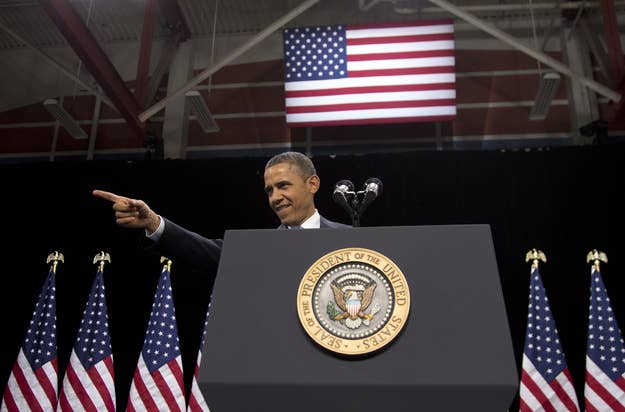
LAS VEGAS — As the nation inches closer to comprehensive immigration reform than it has ever been in 20 years, the often tortured relationship between the Obama White House and Capitol Hill remains perhaps the most significant obstacle standing in the way.
In short: President Barack Obama wants to look like a leader, and Congress just wants him to get out of the way.
In the days leading up to the speech, word leaked from sources close to the White House that Obama would break with the Senate in two key areas even as he expressed excitement that immigration reform "is in our grasps."
Obama's plan called for equal treatment for same-sex couples under proposed reforms and didn't include a "trigger" to make a path to citizenship for undocumented immigrants conditional on further border security.
Democrats fretted that his proposal would torpedo their fragile agreement with Republicans. Republicans, who need immigration reform to reach out to Hispanic voters and ensure the survival of their party, simply hoped he would stay out of the way.
On Monday, White House Press Secretary Jay Carney tried to credit the recent developments on the issue to Obama.
"It's happening because the president has demonstrated significant leadership on this issue," he said.
Flying cross-country Tuesday for four hours just to deliver a 25-minute speech, Obama was trying to project just that, while trying to avoid repeating the sort of sins that have earned him a reputation for being tone-deaf when it comes to Congress.
Going into Obama's speech, Republicans and Democrats alike acknowledged they were worried the president would upset the apple cart in both chambers where bipartisan groups of lawmakers have worked for months to come to agreements on comprehensive reform.
"If the president comes out today and says there's this bipartisan consensus on a series of principles, I think that's positive," Sen. Marco Rubio said prior to the speech. But if "the president is going to come out today and try to start a bidding war to see who comes up with the quickest way and fastest process to get to a green card, I think that's detrimental."
Sen. Lindsey Graham said he remains skeptical that a broad deal on a policy issue like immigration reform can actually get done.
"I'm not confident we haven't lost our minds... I'm not so sure we're capable of doing better," he said. "I'm really not — I'm not so sure we have it within our ability here, to do the things we should do for the country as a whole if we can't solve sequestration. If you can't get bipartisanship around the idea of not destroying education and the military, well, where are you going to find bipartisanship?"
On Obama's role, Graham argued, "the best way to do this is to work together and not have an argument about a left bill versus a right bill versus a middle bill, and get consensus from the get-go."
"When you start putting out concepts that are probably not going to be accepted … you create friction," he said. "There's enough friction points already, I just don't want to get into a fight with the president over some of his ideas."
He added that it would be better if members of the House and Senate met with Obama behind closed doors to finish hashing out the details: "I think that would be the smart way to do it. We've got a chance to do it this year, but it could fail."
Graham bluntly warned that not including an enforcement trigger would face "bipartisan opposition" in the Senate and that LGBT language would be a poison pill. "Yeah, I mean, why don't we just put taxpayer-funded abortion in there and round it out," Graham said sarcastically.
And though the White House immigration proposal does include provisions for same-sex couples, Obama carefully avoided mentioning it in his speech. Democrats breathed an audible sigh of relief at the president's vague address.
"The president is handling this perfectly," said Sen. Chuck Schumer, one of the architects of the Senate deal. "He is using the bully pulpit to focus the nation's attention on the urgency of immigration reform and set goals for action on this issue. But he is also giving lawmakers on both sides the space to form a bipartisan coalition."
Obama encouraged lawmakers to work quickly to pass legislation, warning — as he has at many times throughout his presidency to limited effect — that if Congress doesn't act, he will introduce his own bill.
White House Senior Adviser Dan Pfeiffer told BuzzFeed that Obama's threat only applies if Congress abandons negotiations, adding that the administration is "very encouraged" by the efforts on both sides to reach an agreement.
Brendan Buck, a spokesman for Speaker of the House John Boehner, was nonplussed by Obama's remarks in a statement to reporters, cautioning Obama not to muck up a potential agreement.
"There are a lot of ideas about how best to fix our broken immigration system. Any solution should be a bipartisan one," Buck said, "and we hope the president is careful not to drag the debate to the left and ultimately disrupt the difficult work that is ahead in the House and Senate."

